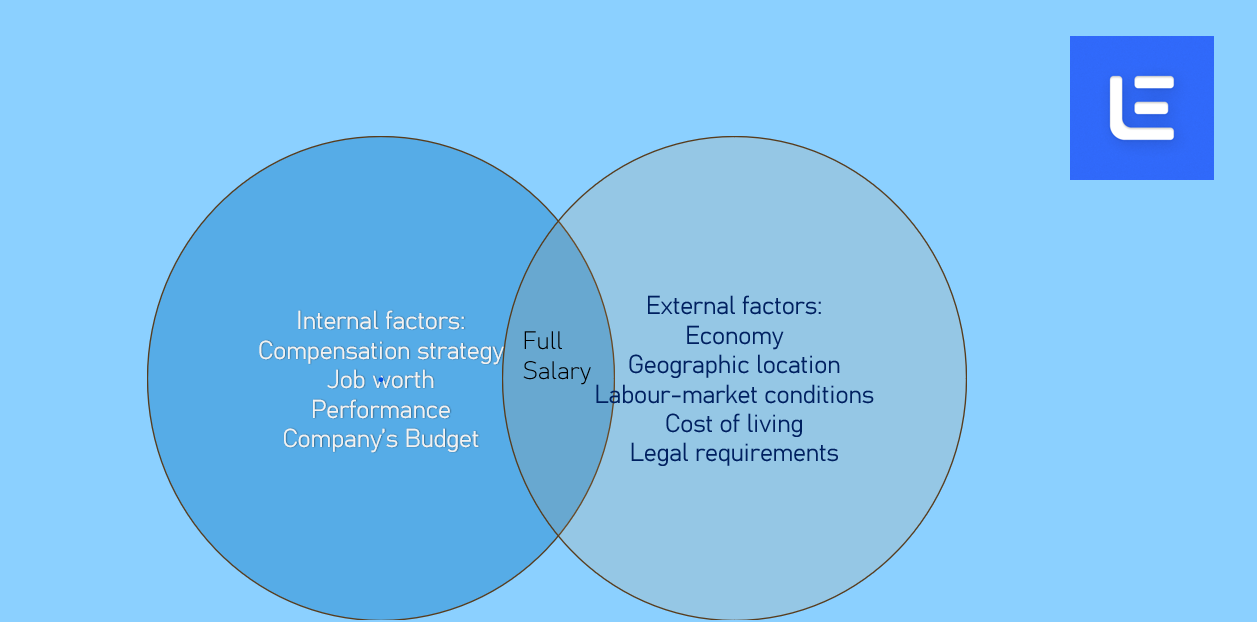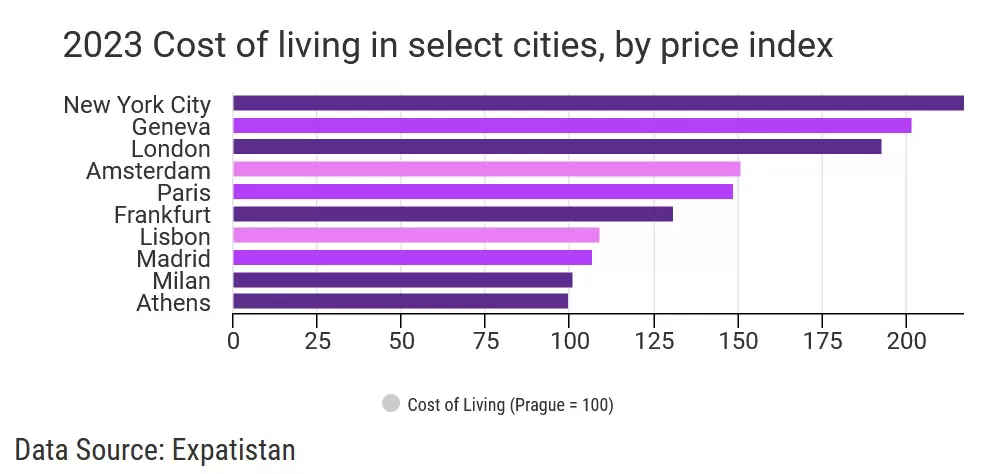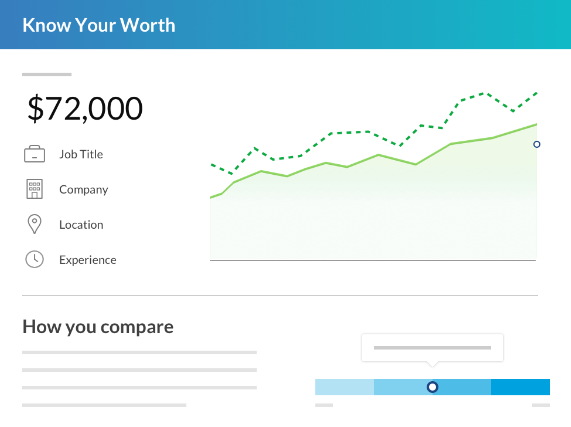Sales salaries go beyond numbers; it is a reflection of the market value and the recognition of the skill set that a professional brings to the table.
It is important to get a clear understanding so you’re never scammed.
The average for Sales Salaries
When considering a career in sales, or seeking to benchmark your current earnings, being aware of the national average for sales salaries in your country is vital.
We have compared the average earnings in sales in three countries for you:
| COUNTRY | AVERAGE | MINIMUM | MAXIMUM |
| France | 61K€ | 45K€ | 100K€ |
| United Kingdom | £34K | £22K | £67K |
| USA | $75K | $37K | $150 |
| Spain | 46K€ | 30K€ | 67K€ |
| Germany | 62K€ | 48K€ | 99K€ |
These figures serve as a foundation to begin your journey in sales.
However, these figures are not set in stone.
They can be influenced by factors such as the level of the position, industry, and geographic location.
For instance, an engineer’s salary may differ notably from that of a manager, reflecting the disparity in responsibilities and expertise required.
Beyond the base pay, commissions and bonuses play a pivotal role in the overall cash compensation.
In order to gain perspective, it’s worthwhile to compare the numbers with similar roles within the business hierarchy.
| Job Title | Average Salary |
| President | $222K |
| Developer | $61K |
| Chief | $315K |
| Representative | $75k |
Determinants of Sales Salaries
Sales salaries are influenced by many factors, and you should understand what drives these figures.
The compensation for a sales role is not solely determined by the title but by a combination of factors that can significantly alter the take-home pay.

Experience is another pivotal factor, with years of experience often correlating with higher pay.
As sales professionals climb the career ladder, from entry-level to engineer min max roles, their salaries tend to increase to reflect their growing expertise and value to the company. This progression underscores the importance of continuous professional development in the sales industry.
Lastly, the size of the company can influence salary levels.
A sales associate at a large, well-established business might receive a different compensation package compared to one at a startup. Often, larger companies have the resources to offer higher base salaries, while smaller firms might compensate with equity, bonuses, or other incentives.
Salaries in Different Regions and Cities
When it comes to sales salaries, the geographical landscape plays a pivotal role.
Salaries can fluctuate significantly across different regions and cities, reflecting different economic climates and living costs that characterize each place.
For instance, a vice president of sales in a bustling city like New York or London may command a considerably higher salary than one in a smaller city due to the higher cost of living and competitive markets.
Cities with a booming tech industry, such as New York City, not only offer higher base salaries but also, potentially, lucrative bonus and commission structures, especially for roles like software engineer min max sales positions.

The cost of living is an essential factor to weigh against potential earnings.
While a sales salary in a high-cost city might appear attractive on paper, the reality of expenses can make it less so.
For example, a software sales professional in London must consider whether the higher salary adequately compensates for the city’s steep living costs.
Moreover, sales professionals should not overlook the additional cash compensation that can come from living in a city with a high concentration of businesses. Cities that serve as hubs for certain industries often offer more opportunities for networking, professional development, and career advancement, which can indirectly influence one’s earning potential.
Beyond Base Pay: Perks and Benefits
While the base pay in sales roles is important, the total compensation package often extends beyond it.
Perks and benefits play a fundamental role in the overall satisfaction and retention of sales representatives and can significantly enhance the value of your compensation.
These are some perks and benefits that could be included:

These salary additional elements can be just as crucial as the base pay, especially in competitive markets where companies strive to attract top talent.
Sales professionals need to integrate benefits into total compensation considerations.
For example, a comprehensive health plan or generous retirement matching can equate to thousands of dollars in additional cash value annually, which might offset a lower base salary.
Sales professionals should not hesitate to discuss cash compensation years or the specifics of the benefits package during salary negotiations, as these can lead to a more tailored and satisfactory employment agreement.
Salary Improvement through Skills and Specializations
A unique set of skills or specializations could mark the difference in your salary.
This is particularly true for roles such as the inside sales representative, where specialized knowledge in areas like medical or tech can lead to higher compensation.
Skills that are in high demand, such as proficiency in advanced CRM software, fluency in multiple languages, or expertise in complex product lifecycles, can set a candidate apart. These proficiencies can justify a higher base salary, as they contribute directly to the success of a sales team.
Certifications can also play a pivotal role in salary discussions.
For instance, a sales engineer with recognized industry certifications may have a stronger argument for a higher pay grade.
Similarly, a vice president of sales with a proven track record of strategic leadership and successful team development can command a premium in the job market.
Specialized roles often come with their own set of compensatory advantages.
A sales engineer, for instance, typically requires a blend of technical know-how and sales acumen, which can lead to a higher salary/years/experience correlation.
Companies are willing to pay more for these hybrid professionals who can bridge the gap between product development and customer needs.
Investing in yourself through continuous learning and skill acquisition can be a game-changer for sales professionals.
Optimal Earnings and Salary Negotiation Strategies
Negotiation is critical for any sales professional, as it will directly impact yearly salary outcomes. Understanding one’s worth and effectively communicating it can lead to significant salary improvements.
To ensure a successful negotiation, it is essential to come prepared with comprehensive market data.
This includes understanding the standard salary for a sales engineer, the average compensation for a manager’s level, and the additional cash benefits that might be on offer.
Tools such as salary calculators and industry reports promote transparency and empower employees to engage in informed salary discussions.
Use Glassdoor’s sales calculator to guide you!

The correct interpretation of market data can also reveal the potential for salary growth.
For example, understanding the typical yearly salary and additional benefits that come with certain sales roles can be a strong bargaining chip during salary negotiations.
When a sales professional can demonstrate how their skills contribute to company revenue, they are in a better position to negotiate for a salary that reflects their value.
It’s also important to recognize that negotiation isn’t just about the base salary.
Discussing the full compensation package, including bonuses, commission structures, and other perks, is crucial. A well-rounded approach to negotiation can result in a more satisfying compensation package that aligns with the professional’s needs and expectations.
Salaries Across Various Sales Roles
Sales roles are diverse, with each position holding its own salary structure.
Sales professionals should understand how their role compares to others within the industry, such as a marketing manager or an inside sales representative. This knowledge can provide insight into career development opportunities and compensation expectations.
These are the highest-paid sales positions according to usahello.org

For example, the role of a sales engineer often includes a technical aspect that can command a higher salary compared to traditional sales roles. The reported yearly income for these professionals reflects their specialized knowledge and the complexity of the products or services they sell.
On the other hand, a marketing manager may have a different compensation model, which includes a base salary with potential bonuses based on campaign performance and other marketing objectives.
This role requires a blend of creativity, strategic planning, and the ability to drive brand awareness and sales through various marketing channels.
Key Takeaways
To recap, factors such as years of experience, industry trends, and geographical location play pivotal roles in shaping a sales professional’s salary. Additionally, perks and benefits can supplement base pay to create a more attractive total compensation package.
For those looking to further their knowledge and stay updated on salary trends, there are several resources available. Websites such as Glassdoor and Payscale offer valuable insights into current compensation rates, while professional associations and sales industry publications can provide ongoing education and updates on market shifts.
Sales professionals should continuously invest in their personal development in order to ensure adaptability in an ever-evolving sales environment.
Ultimately, the ability to effectively negotiate and present one’s value to an employer can make a significant difference in salary outcomes.
FAQs
- What are the key factors that affect a sales representative’s compensation?
Key factors include the individual’s years of experience, the specific industry they work in, the geographical location, and the size of the company they work for. Commissions and bonuses based on performance also play a significant role in overall earnings.
- How can I increase my sales salary prospects?
Focus on developing in-demand skills, gaining specialized knowledge, and obtaining certifications relevant to your sales role. Additionally, learn effective negotiation techniques and stay informed about market rates to ensure you are compensated fairly for your expertise and contributions.
- What should be included in a sales salary negotiation?
When negotiating a sales salary, it’s important to consider not only the base salary but also potential commissions, bonuses, and benefits. Be prepared to discuss your years of experience, sales achievements, and market data that supports your requested compensation. Don’t forget to negotiate non-monetary benefits, such as flexible working conditions, professional development opportunities, and other perks that can enhance your overall satisfaction and performance.
- Are sales salaries typically higher in certain industries?
Yes, sales salaries can vary significantly across industries. Sectors such as technology, pharmaceuticals, and finance often offer higher compensation due to the complex nature of the products or services sold and the critical impact of sales roles on the company’s revenue. It’s crucial to research industry-specific salary information to understand where the highest earning potential lies.
- Can sales professionals expect salary increases over time?
Sales professionals can anticipate salary increases as they gain more experience and demonstrate success in their roles. Advancing to higher positions such as sales manager or vice president of sales typically comes with increased earnings. Regularly achieving or exceeding sales targets may also lead to bonuses and higher commission rates that boost overall income.
- How does the cost of living affect sales salaries?
The cost of living can have a significant impact on sales salaries. High-cost areas often offer higher salaries to compensate for the increased living expenses.
Your source of actionable outreach tips and strategies that will help you get replies and grow your business.

